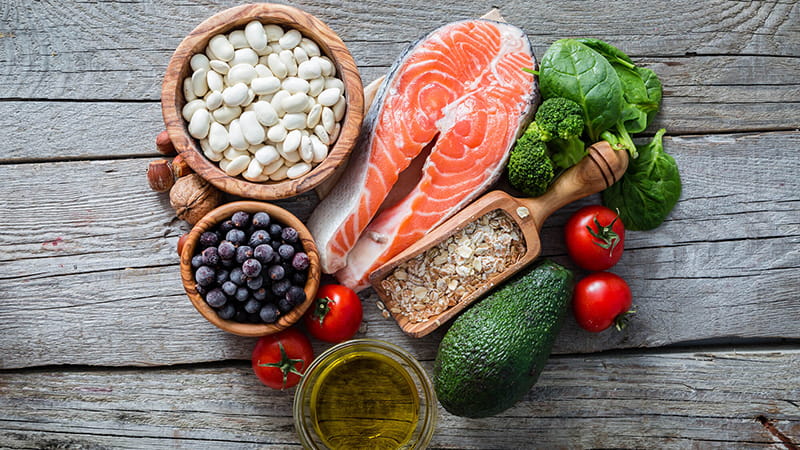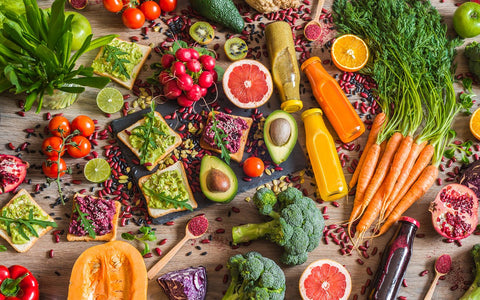
Every week a new diet or eating approach seems to appear on media outlets. Keto, vegan, intermittent fasting—and more all claim to be healthy, effective eating styles. The one diet you may be unaware of actually isn’t a diet at all.
If you haven’t heard about intuitive eating—it’s a style of eating that differs from conventional forms of dieting. No calories are counted and no limitations are placed on types of food that can be consumed. That means people don’t have to arbitrarily label foods as ‘good’ or ‘bad.’ Like the name implies intuitive eating is a lifestyle with food consumption based around how a person feels.
Hi I’m Sean Torbati. While intuitive eating may seem simplistic at face-value—there are some guidelines that should be followed. I would also like to caution that intuitive eating may not work for all individuals. People that lack self-restraint or struggle with eating disorders may find better success with more rigid dietary plans.
Intuitive eating is the perfect lifestyle for those consciously aware of their bodies. In fact, one study cited intuitive eating “has been proposed as a healthier, more effective, and more innate alternative to current strategies of weight management” (1). This doesn’t mean that one can simply grab the nearest bag of cookies or chips without a second thought. Applying intuitive eating in daily life means being mindful both of what you eat and how you feel. Developing this sort of healthy relationship with food can go a long way towards practicing a healthy sustainable diet.
Let’s take a closer look at what intuitive eating is and how you can apply it in your daily life.

What is Intuitive Eating?
Intuitive eating is a practice which lifts the limitations of traditional diets. You aren’t restricted to consuming only ‘clean’ or ‘healthy’ foods. Calorie counting is also eliminated, but people must pay close attention to how they feel as they’re eating.
Those with healthy lifestyles may find better success with intuitive eating as they’re likely to be more in-tune with their bodies. Here’s some common guidelines that will help people follow the intuitive eating:
The mental aspect of intuitive eating is equally important as the physical aspect. People choosing to practice this particular lifestyle must be cautiously aware of both their body and mind. Eating until satisfied shouldn’t involve stuffing yourself. It means slowly consuming food just until reaching the point of satisfaction.
Who Can Benefit from Intuitive Eating?
Intuitive eating isn’t designed to be a quick-fix dieting solution. It’s a lifestyle that should be practiced by people who are simply tired of conventional diets. Intuitive eating can be tailored to fit people with any type of lifestyle. Don’t be confused however—this doesn’t mean simply eating whatever you want in limitless quantities. Practicing mental restraint and fortitude is key for ensuring it fully works.
One study noted that many people struggle through traditional diets due to their restrictive nature and potential link to psychological distress (2). Individuals who practiced intuitive eating noted marked improvements in habits, lifestyle, body image, and body satisfaction.
Rejecting the standard diet mentality doesn’t work for everyone as many individuals achieve success through rigid guidelines and standards. Practicing intuitive eating becomes more natural as time goes on.
People should be mentally aware of their mental power over food. If you decide to eat a piece of candy, enjoy it but don’t overindulge to the point of feeling sick. This can help alleviate common problems of binging and overeating that many people experience. I’d like to reiterate that intuitive eating is not for everybody, but it can work for select individuals. One recent study noted that “unconditional permission to eat” was cited as a challenge for many people attempting intuitive eating(3). It’s important to take a mental inventory of your feelings and awareness on an ongoing basis.

Why Intuitive Eating Might Be Right for You
Many people commonly experience feelings of guilt, frustration, and failure when attempting to follow common diets. Although no single diet is a one-size-fits-all for everyone—it’s important to make lifestyle choices most conducive to your overall health and well-being.
Being mentally aware of your mind and body can make intuitive eating an easy choice for people who are tired of traditional dieting. Although some people may struggle with the style of eating—those with strict self-practice will quickly see the benefits come to fruition.
The term diet has a negative connotation as it enforces restrictions on what can be eaten. I’ve always been a firm advocate for healthy lifestyles over strict diets. Always keep in mind that food is a fuel source for the body. Maintaining this mindset can go a long way towards sustainable success in the long-term.
No matter how you choose to eat—always practice healthy habits that enrich the mind, body, and soul. If you have any other dietary questions don’t hesitate to reach out to me. I’m here for the sole purpose of helping you lead a better lifestyle.
Kindest regards,
Sean Torbati - PN Certified Nutritionist | EXOS Phase 3 Training Specialist
Co-Founder, Ambrosia Collective
References:












